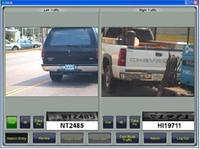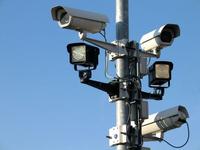-
Judge rules NSA’s collection of telephony metadata is legal
A federal judge on Friday ruled that the collection of large amounts of phone metadata by the National Security Agency (NSA) is legal. The decision by Judge William H. Pauley III in New York adds yet another legal interpretation to an increasingly contentious debate over the legality of the NSA collection programs. In just eleven days, two judges and a presidential review panel reached significantly different conclusions about key issues related to the NSA surveillance program, among them the intelligence value of the data the program collects, the privacy interests – and expectations — at stake, and the constitutionality of the program in its present form.
-
-
Egypt designates Muslim Brotherhood a terrorist organization
Accusing the Muslim Brotherhood of being behind a Tuesday car-bomb attack on the police headquarters in the Niles Delta city of Mansoura, an attack which killed sixteen people and wounded more than 100, the Egyptian government on Wednesday designated the Muslim Brotherhood a terrorist group, thus making it a state crime not only to take part in the movement’s activities and contribute money to it, but criminalizing even registering for membership in the organization.
-
-
Breed-specific legislation does not protect the public from dangerous dogs

Research conducted by animal behavior experts challenges the basis of breed-specific legislation designed to protect the public from “dangerous” dogs.The researchers concluded that rather than making people safer, current legislation in the United Kingdom could be lulling them into a false sense of security.
-
-
Declassified documents strongly argue for keeping NSA programs secret
On Saturday, James Clapper, the Director of National Intelligence, declassified a set of ten court documents which show that both the Bush and Obama administrations assert that that some of the more sensitive NSA surveillance programs should be kept secret. The administration declassified the documents following a court order related to two lawsuits filed the Electronic Frontier Foundation. The Bush and Obama administration strenuously reject the EFF’s charge that they were running a “dragnet surveillance.” Both administrations contend that the collection programs with explicit limits and minimization procedures which effectively protected the Constitutional rights of Americans.
-
-
Federal judge: NSA's collection program violates Constitution

A federal judge, describing the NSA metadata collection program as “almost Orwellian,” yesterday ruled that the program which systematically collects and keeps records of all Americans’ phone calls most likely violates the Constitution. “I cannot imagine a more ‘indiscriminate’ and ‘arbitrary’ invasion than this systematic and high-tech collection and retention of personal data on virtually every single citizen for purposes of querying and analyzing it without prior judicial approval,” Judge Richard J. Leon wrote. “Surely, such a program infringes on ‘that degree of privacy’ that the founders enshrined in the Fourth Amendment.”
-
-
Two U.K. terrorists plead guilty in U.S. court
Two British men who spent eight years fighting extradition to the United States have pled guilty to terrorism charges. Babar Ahmad, a 39-year-old south London resident admitted to charges of conspiracy and providing material support to terrorism. The case against both men is based on a Web site and terrorism support network that one of them operated in London. As one of the first Web sites promoting Jihadism in English, it played a pivotal role in spreading Jihadist propaganda as the movement began to develop in the West.
-
-
Police cell-phone tracking raises privacy concerns

Law enforcement agencies around the country are using the International Mobile Subscriber Identity locator (IMSI catcher), known as Stingray, to track cellphone users for the purpose of assisting criminal investigations. Stingray masquerades as a cellphone tower, tricking phones into sending it a signal that law enforcement can later use to identify the serial number of the phone and track the subscriber or cellphone user. Privacy advocates are worried about widespread police tracking of cellphones and violations of privacy.
-
-
Lawmakers: Old plastic gun law has not kept pace with technology
The U.S. House of Representativesvoted last Tuesday to renew the 25-year old Undetectable Firearms Actwhich prohibits firearms that can evade metal detectors and X-ray machines. Law enforcement agencies say that developments in 3D printing make the law insufficient, and lawmakers who proposed amending the Act say that the only way to make such guns detectable is to require that at least one component of the firing mechanism in a plastic gun contain enough metal to be detectable in a magnetometer — and that that component be undetachable. The NRA opposes these requirements, saying that they would infringe on the Second Amendment rights of citizens.
-
-
Texas terror case may hinge on reason for a FISA warrant
The Foreign Intelligence Surveillance Act (FISA), passed in 1978, was the center of a Fifth Circuit Court of Appeals trial last Thursday in New Orleans. The case involves Khalid Ali-M Aldawsari, a former Texas Tech student serving a life sentence for an attempted use of a weapon of mass destruction. At trial, federal prosecutors described Aldawsari as a “lone wolf” terrorist planning to wage a personal “holy war” from Lubbock, Texas. In the application for the warrants, however, prosecutors identified Aldawsari to a FISA court judge as an “agent of a foreign power.”
-
-
More states move to limit LPR use
Law-enforcement units across the United States have been using license plate readers (LPRs) to monitor vehicles on public roads in order to locate missing individuals, investigate murderers, or track hit-and-run drivers. Privacy advocates are concerned with the wholesale storage of license plate information, and the fact that some municipalities have no limits on how long plate numbers can be stored. LPRs proponents are worried that the recent revelations about the NSA surveillance programs make it difficult for LPRs and other law-enforcement technology to get a fair hearing.
-
-
Wisconsin legislature considering restriction on LPRs

State legislators in Wisconsin have proposed a law to limit the use of license plate readers, drawing criticism from local law enforcement. Republican state Representative David Craig, the sponsor of the proposed legislation, said: “The vast majority of [the LPR] images are becoming nothing more than a database of the whereabouts of average citizens. The time has come to ensure the civil rights of citizens are not being violated, while also ensuring law enforcement has the tools needed to effectively enforce our state’s laws.”
-
-
Israel withdraws from U.S. terror case to placate China

The Israeli government has prohibited a former security official from testifying in an anti-terrorism case in the United States. The case involves families of victims of Palestinian suicide bombers who claim the Bank of China facilitated transfers of funds used to carry out the suicide attacks, and other attacks which are not part of the case. The Israeli government initially pushed for the official’s testimony because it would have shed light on the services the Bank of China offered Hamas and Islamic Jihad – but now says it would not allow him to testify for fear the testimony would reveal methods and sources.Critics of Netanyahu’s U-turn on the issue of fighting terrorism, an issue which has been central to his political career, say that preventing the official from testifying has nothing to do with intelligence information. Rather, it has to do with Israel’s growing economic and security relations with China.
-
-
Security agencies concerned about plastic guns
The Undetectable firearms Act of 1988, which makes it illegal to manufacture, import, sell, ship, deliver, process, transfer, or receive a firearm which is not detectable by walk-through metal detection, is set to expire on 9 December 2013. If Congress fails to reauthorize the law, plastic guns will no longer require metal components which are detectable by metal detectors. “When these 3D firearms are manufactured, some of the weapons can defeat normal detection such as metal detectors, wands, and it could present a problem to public safety in a venue such as an airport, an arena, a courthouse,” says ATF assistant director Richard Marianos.
-
-
Ohio lawmakers want to limit use of drones by law enforcement
State lawmakers in Ohio want to limit the use of drones by law enforcement agencies in the state.A proposed bill would require law enforcement to obtain a search warrant before using drones. It would prohibit law enforcement from using drones to search for missing persons, locate illegal marijuana operations, or perform several actions officers currently handle with helicopter surveillance.
-
-
Advanced police surveillance technologies pose significant privacy concerns

Much of the attention on surveillance in the media focuses on the National Security Agency (NSA), but there is not a lot of scrutiny on local domestic surveillance. In 1997, about 20 percent of police departments in the United States used some type of technological surveillance. By 2007, that number had risen to more than 70 percent of departments. Experts in criminal law and information privacy warn that the widespread use of advanced surveillance technologies such as automatic license plate readers, surveillance cameras, red light cameras, and facial recognition software by state and local police departments, combined with a lack of oversight and regulation, have the potential to develop into a form of widespread community surveillance, which ought to pose significant privacy concerns to law-abiding citizens.
-
More headlines
The long view
Preventing Another 'Jan. 6' Starts by Changing How Elections Are Certified, Experts Say
The 2024 presidential election may be a rematch between President Joe Biden and former President Donald Trump, but preventing a repeat of Jan. 6, 2021 — when false claims of a stolen election promoted by Donald Trump and his allies led to an insurrection at the U.S. Capitol —will be top of mind this election year. Research finds broad support among public for nonpartisan certification commissions.
